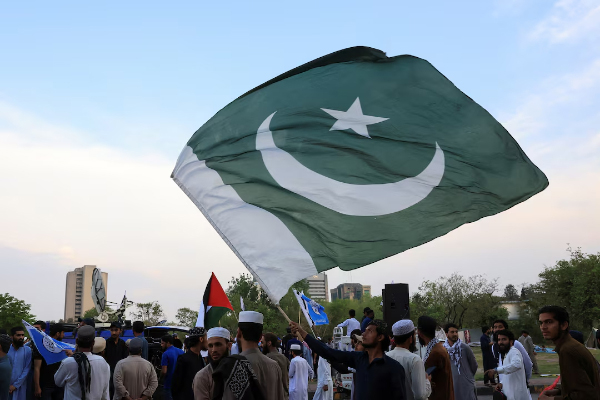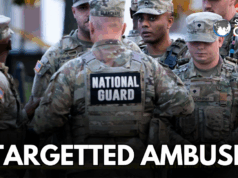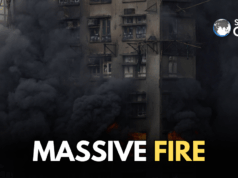
India recently slammed the Asian Development Bank (ADB) for greenlighting fresh aid to Pakistan, flagging deep concerns that these funds will only fatten the military’s terror war chest rather than reach civilian development.
It’s not paranoia—it’s a pattern. The same military that runs vast business empires also runs Pakistan’s government, and foreign aid all too often ends up subsidising terror factories rather than schools or hospitals.
This protest carries added weight because of who really calls the shots at the ADB. The bank’s five largest shareholders — Japan and the United States (each holding 15.6% of shares), China (6.4%), India (6.3%), and Australia (5.8%)—wield significant influence. India’s objection, therefore, is a pointed rebuke not just to Pakistan, but to an institution where major powers are complicit in enabling this bailout treadmill.
India’s specific concern: that these funds can be easily diverted to military spending. And recent developments seem to prove the point. After Operation Sindoor—India’s military response to the Pahalgam terror attack—Pakistan was seen deploying a surge of Chinese-origin fighter jets and a growing fleet of drones, clearly reflecting a ramp-up in defence expenditure. Not exactly the textbook definition of “development spending.”
Before the ADB’s decision, the International Monetary Fund (IMF) had already handed Pakistan a fresh $1 billion bailout on May 9, with another $1.3 billion expected soon. This was despite Pakistan’s decades-long record of economic mismanagement, military interference, and use of funds for sponsoring cross-border terrorism.
India’s rare abstention from the IMF bailout vote wasn’t some newfound diplomatic balancing act. It was a blunt message: why bankroll a military-industrial complex that traffics in ideology, terror, and economic fakery?
Here’s the grim scorecard: Pakistan has taken IMF money 28 times in the last 35 years. Four bailouts in five years. Zero meaningful reform. The economy is propped up by debt, subsidies, and empty promises that vanish faster than an IMF mission chief’s patience in Islamabad.
Meanwhile, the military—Pakistan’s real board of directors—controls the budget, the terror networks, and the country’s future. Expecting IMF aid to spur civilian reform in such a setup is like wiring funds to a mafia don and expecting a charity report.
And India’s warnings about aid funds fuelling terrorism remain valid. How do you separate “development grants” from “drone fuel” when the same generals run both ledgers?
Yet the West keeps playing the same tune: better a bankrupt nuclear power on life support than a total collapse that risks refugee floods, nukes on the black market, and jihadist free-for-alls. So the money keeps flowing.
Welcome to the Terror Bailout Club. No accountability. No consequences. Just endless bailouts that fund Pakistani generals and their terrorist lapdogs.
In a career spanning three decades and counting, Ramananda (Ram to his friends) has been the foreign editor of The Telegraph, Outlook Magazine and the New Indian Express. He helped set up rediff.com’s editorial operations in San Jose and New York, helmed sify.com, and was the founder editor of India.com.
His work has featured in national and international publications like the Al Jazeera Centre for Studies, Global Times and Ashahi Shimbun. But his one constant over all these years, he says, has been the attempt to understand rising India’s place in the world.
He can rustle up a mean salad, his oil-less pepper chicken is to die for, and all it takes is some beer and rhythm and blues to rock his soul.
Talk to him about foreign and strategic affairs, media, South Asia, China, and of course India.




